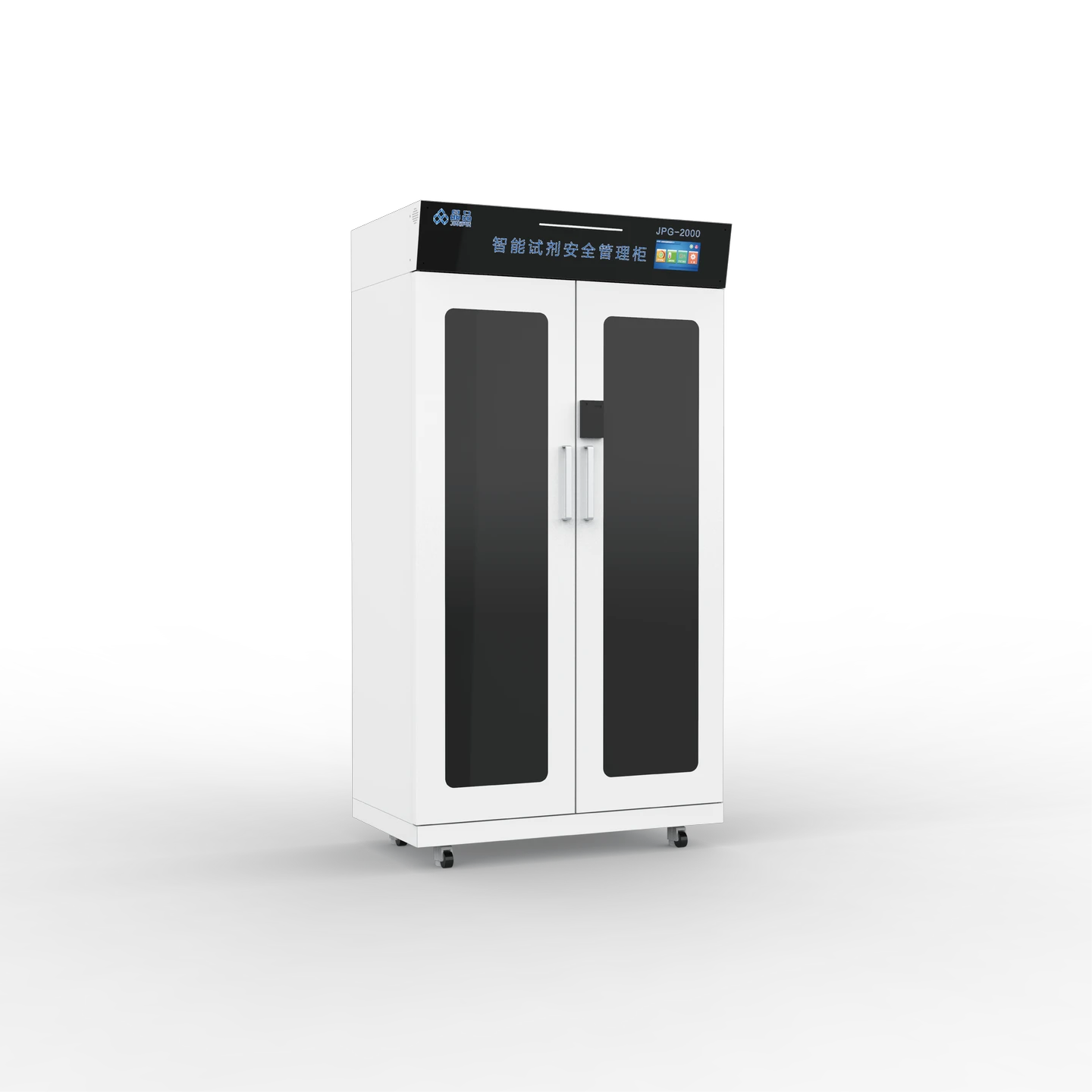
Products
Reagent cabinet, Lab reagent storage cabinet, Intelligent reagent Beijing Jingpin cabinet 2024-05-11 09:15 978
What’s The Difference Between A Chemical Cabinet and a Chemical Storage Container?
While chemical cabinets are designed for use in an indoor work environment, chemical storage containers are the equivalent solution for outdoor areas. Chemical storage containers are constructed differently to safety cabinets. This is because outdoor containers must provide protection from the elements, such as rain, cyclones and excessive heat. They must also be able to withstand impact from a moving vehicle or falling debris, such as a tree branch that is thrown onto the container during a storm.
While there’s no requirements that prohibit a chemical cabinet from being used outdoors, we strongly recommend that you use chemical cabinets as an indoor dangerous goods storage method.

Are you sifting through the options for dangerous goods storage? Or perhaps you’ve been told to acquire a chemical cabinet for your workplace — but you’re not quite sure what they are? This post will help you answer the question, ‘What is a chemical cabinet?’. We’ll be explaining how these cabinets reduce risk for organisations. We’ll also be detailing the types of chemicals that you can store in a cabinet, and what types of workplaces can benefit from installing them.
If you’ve been wondering how a chemical cabinet compares with other types of dangerous goods storage options, we’re here to clear up the issue — so you can find out if it’s the right piece of equipment for your operations.
So, What Is It?
Whether you call it a chemical cabinet, HAZMAT storage cabinet or safety cabinet, this type of equipment is one of the most popular types of workplace chemical storage.
Unlike a custom-made chemical store that is constructed within your premises, the indoor chemical cabinet is a ready-made storage solution that is easy to move, install and relocate.
Chemical cabinets are equipped with specific control measures that minimise the likelihood and impact of hazards, such as fire, spillage and harmful vapours.
Cabinets are generally the go-to piece of chemical storage equipment for businesses that are seeking indoor storage for their hazardous chemicals and dangerous goods.
Benefits include:
Cost-effective – a fully assembled chemical cabinet is a cheaper storage option than a chemical store that is constructed onsite for your premises
Full range of risk control measures – your ready-made cabinet is already designed and constructed to provide the highest levels of risk control for your chemicals
Durable – constructed from sheet steel, these cabinets are designed to be a long-term investment for your business, providing protection for years or decades
Flexible – with fully adjustable shelving within the safety cabinets, you can fit a range of different chemical packages of various dimensions
Relocatable – if your workspace shifts or changes, your cabinet can be re-installed in a new location with minimum fuss
What Type Of Chemicals Do They Store?
Chemical storage cabinets are constructed to house a particular class of dangerous goods. This means that there are chemical cabinets specifically constructed for the storage of dangerous goods, such as:
Class 3 Flammable Liquids
Class 4 Flammable Solids
Class 5.1 Oxidising Agents
Class 5.2 Organic Peroxides
Class 6 Toxic Substances
Class 9 Corrosive Substances
IMPORTANT: If you’re storing dangerous goods such as Class 2.1 Flammables Gases and Class 2.2 Non-Flammable, Non-Toxic Gases, we recommend using gas bottle cages (not safety cabinets) as gases require different risk control features.
You’ll find that the features of each class of cabinet differs to meet the hazard requirements of the particular dangerous goods class that you’re storing.
For example, flammable liquids pose a wide range of risks to the businesses that store them, including the risk of fire or explosion if the vapours meet an ignition source. Therefore, flammable liquids cabinets are designed with self-closing, close-fitting doors (held shut automatically by catches at two or more points), which provide vapour containment, a liquid-tight enclosure and a heat barrier in the event of a workplace fire.
On the other hand, corrosive substances pose the risk of harm to people and property due to their ability to corrode living tissue, metal and other materials. Therefore, a safety cabinet designed for use with corrosive substances will have PVC spill trays on the shelves. This is to prevent chemical attack and damage to the cabinet. This is a unique feature only found in cabinets that house corrosive substances.
We’ll detail some of the general risk control features of a safety cabinet a little later in our blog.
REMEMBER: When storing any type of dangerous goods or hazardous chemicals, you must always be aware of the dangerous goods segregation guidelines. Chemicals may be incompatible or react dangerously with each other, so strict segregation methods must be applied to storage areas.
Demand feedback